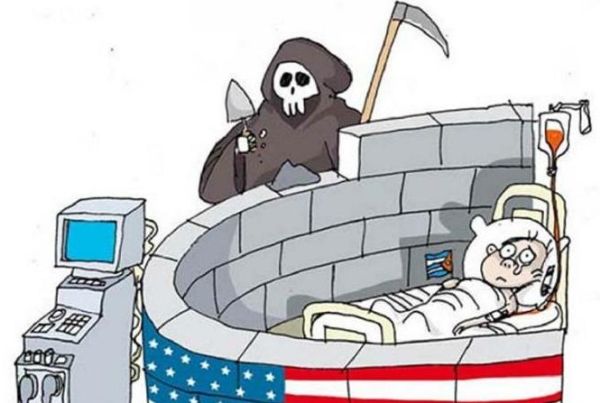On his profile on X, Rodríguez affirmed that Washington’s hostile policy does not achieve its objective of overthrowing the Revolution, but has caused severe damage to the Cuban people, and demanded its end.
On February 3, 1962, then US President John F. Kennedy issued Proclamation 3447, which decreed a total “embargo” of trade against the Caribbean nation, with the justification of this country’s rapprochement with the socialist community.
Since then, the policy of encirclement and economic suffocation was consolidated as the central axis of the strategy aimed at restricting the legitimate right of Cubans to defend their sovereignty and forge an emancipatory project, alien to the domination of the United States.
Such provisions limit the possibilities of economic development by hindering commercial relations with third countries, as well as banking-financial operations, curbing foreign investment, and cutting off all sources of income.
The damages of the blockade in these more than sixty years, based on the value of gold, reach 337 billion dollars, incommensurable figures for any economy in the world, reflected in the most recent report presented by the island at the United Nations General Assembly.
Such a policy has a lethal impact with direct and indirect economic damage and seeks to deprive the country of the financial income that is essential to acquire food, technologies, supplies, and also causes losses to tourism, he noted.
In the context of this policy, the US Government applied, between January 2021 and February 2023, 909 discriminatory actions to cancel contracts and services by foreign banks.
The blockade against Cuba is considered the most complex, prolonged and inhumane act of economic war committed against any nation.
On February 3, 1962, then US President John F. Kennedy issued Proclamation 3447, which decreed a total “embargo” of trade against the Caribbean nation, with the justification of this country’s rapprochement with the socialist community.
Since then, the policy of encirclement and economic suffocation was consolidated as the central axis of the strategy aimed at restricting the legitimate right of Cubans to defend their sovereignty and forge an emancipatory project, alien to the domination of the United States.
Such provisions limit the possibilities of economic development by hindering commercial relations with third countries, as well as banking-financial operations, curbing foreign investment, and cutting off all sources of income.
The damages of the blockade in these more than sixty years, based on the value of gold, reach 337 billion dollars, incommensurable figures for any economy in the world, reflected in the most recent report presented by the island at the United Nations General Assembly.
Such a policy has a lethal impact with direct and indirect economic damage and seeks to deprive the country of the financial income that is essential to acquire food, technologies, supplies, and also causes losses to tourism, he noted.
In the context of this policy, the US Government applied, between January 2021 and February 2023, 909 discriminatory actions to cancel contracts and services by foreign banks.
The blockade against Cuba is considered the most complex, prolonged and inhumane act of economic war committed against any nation.
 Escambray ENGLISH EDITION
Escambray ENGLISH EDITION





Escambray reserves the right to publish comments.